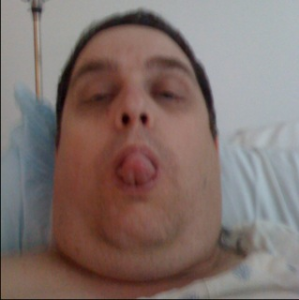April 25, 2025
Heart Health
Posted on 18-Dec-2009, Friday | in Self | by BillMitral Valve Prolapse
At 30, I was diagnosed as having Mitral Valve Prolapse (MVP). The mitral valve between the left atrium and left ventricle does not close properly and may “leak”. This is a common cause for hearing a murmur when listing with a stethoscope. At that time, I had several tests run and was told it was not an immediate concern and I should have periodic monitoring to see that it didn’t worsen. Seeing as how I felt fine, I said “OK” and returned to my normal routine and didn’t really give it much additional thought.
Then, during a routine physical in 2002, my doctor in Cleveland commented on the murmur and recommended a followup — it had been over 10 years since my original (and only) testing. I still felt fine, but went ahead with the request. The ultrasound showed “significant” regurgitation (leaking), but I was still feeling good and had no related problems. It was decided to monitor for any changes. Again, I said “OK” and returned to my normal routine and was not concerned.
Things Change
This summer, things changed. I had a heart attack that required intervention. Two stents were placed and I was put on blood pressure medication – and it was suggested I reduce my weight. I definitely needed to lose weight as I had allowed my self to gain 60-plus pounds in the last 10 years. It was also noted that the MVP was present and I had significant regurgitation – 3-plus on a scale of 0-4. This would now need frequent monitoring to avoid future complications.
I was feeling good and looking forward to getting home when my hospital stay was lengthened for a couple of days of monitoring due to a short episode of atrial fibrillation. Like the MVP, I was asymptomatic and unaware of the atrial fibrillation.
After I was back home, I began making necessary changes to my diet. No more “convenience” foods from the freezer section at the grocery store. I enjoy cooking, so I started fixing all of my meals with consideration for heart health. Low sodium does not have to be low flavor. This part was actually easy. I also started back with my bicycling. 10-20 miles to start and then up from there. I was feeling great!
A few weeks after my discharge, I entered the cardiac rehabilitation program at Cleveland Clinic. As part of the process, they do a baseline stress test on a treadmill to determine your cardiac health and physical limits. An exercise program is then designed around your individual needs. This test did not go too well… before I was even tired, they made me stop. Seems that I went into atrial fibrillation on the treadmill and did not even realize it. After a short interval, my heart rhythm returned to normal.
The return to normal was good, but the episode itself was a cause for concern. My medications were adjusted and I was put on blood thinners – to lower the possibility of a clot forming due to the fibrillation. OK. I can deal with this also… Only problem is the medications are targeted at controlling my heart rate and this makes it more tiring to ride my bike. I can deal with it, but it is not fun.
Rehab was going great and it was time for a followup with the cardiologist and another stress test. Again, I went into atrial fibrillation, but was feeling fine and was completely asymptomatic. This time, they let me continue on the treadmill to see if I developed additional symptoms. No. I continued without feeling there was a problem for another 2 stress levels.
After reviewing the test results, my cardiologist and I started discussing the future. The MVP would cause progressive problems and eventual congestive heart failure (CHF). The atrial fibrillation may be controlled by drugs and would require me to remain on blood thinners (warfarin) as long as it was present – and it would not go away on its own. Of course the CHF was 5, 10, maybe 15 years in the future, but it was the definite outcome.
I had two options open to me. Surgery to repair the mitral valve or continuing as I am and monitoring for changes. While monitoring, I would continue on the same or more medications and the only outcome would be future surgery. This translates to actually only have one decision to make. When do I want to have surgery?
Decision Time
I decided to do some research of my own and it supported my cardiologist’s view.
- At some point I would need surgery.
- The earlier the surgery, the better the long term prognosis.
- Cleveland Clinic is the #1 ranked heart center.
- There are new minimally invasive and robotic assisted surgery options.
- Surgery could limit or eliminate the medications I take long term.
For me, it became an easy decision. It only makes sense to have surgery now while I am relatively healthy. Having the option for the robotically assisted heart surgery really won me over. Lower hospital time and faster recovery is a definite plus. By spring I will be finished with my rehabilitation and fully recovered.
Let’s Do It
Dr. Tomaslav Mihaljevic, M.D. will be performing my surgery on December 23. Pre-operative tests and interviews have been finished.
Updated this entry to match my posting on theStatus.com.

Leave a Reply